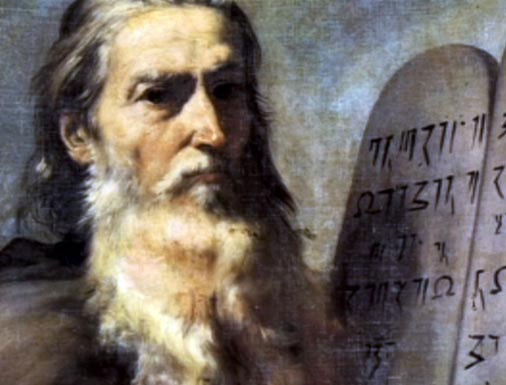Based on an interview with Prime Minister Benjamin Netanyahu conducted by Ben Shapiro
Understanding the Jewish Connection to the Land of Israel
“The Jewish people came here with Abraham… This has been our land for 3,500 years, with Jerusalem as our capital for 3,000.”
— Prime Minister Benjamin Netanyahu
The story of Israel is not a modern tale—it is ancient, deep, and continuous. From the time of Abraham, Isaac, and Jacob, the Jewish people have been tied to the land of Israel. Despite exile, conquest, and dispersion, the Jewish dream of return never died. For centuries, Jews around the world echoed the prayer, “Next year in Jerusalem.”
In the 19th and early 20th centuries, waves of Jewish immigration—motivated by both persecution and prophecy—set the stage for the re-establishment of a sovereign Jewish homeland.
Defying History: The Rebirth of a Nation
Against all historical odds, the Jewish people not only survived millennia of statelessness—they returned, rebuilt, and re-established the State of Israel in 1948. No other nation has revived its ancient language, restored its ancestral homeland, and reconstituted statehood after such dispersion.
Today, Israel thrives as a vibrant democracy—providing equal rights for Jews and non-Jews alike, standing as the only such beacon in the Middle East.
The Legacy of Benzion Netanyahu and Ze’ev Jabotinsky
The Vision of Jabotinsky
Ze’ev (Vladimir) Jabotinsky was a brilliant orator, writer, and Zionist revolutionary who founded the Revisionist Zionist movement. He championed a strong, secure Jewish state in the biblical homeland—long before it was politically popular.
In the 1930s, Jabotinsky tirelessly lobbied the British government to permit Jewish immigration to Palestine. But Britain, under pressure from Arab leaders, had closed the gates.
Benzion Netanyahu: Zionism’s American Strategist
Dr. Benzion Netanyahu, father of the current prime minister, was only 23 years old when he warned in 1933 that a coming “Holocaust” threatened not only the Jews of Europe—but global peace.
Seeing that the British were immovable, Benzion told Jabotinsky:
“You have the right idea, but you’re in the wrong place. Go to America.”
He understood early that America—not Britain—would shape the post-war world. He persuaded Jabotinsky to focus on American opinion and influence. Tragically, Jabotinsky died in 1940, and Benzion continued the effort alone.
Creating Bipartisan U.S. Support for Israel
In 1942, Benzion Netanyahu turned to the Republican Party, as President Roosevelt refused to back Jewish statehood due to British and Arab objections. Netanyahu approached Senator Robert Taft, convincing him to include support for a Jewish state and unrestricted Jewish immigration in the GOP platform.
Roosevelt was displeased—but three months later, the Democrats adopted the same language, creating what would become a historic bipartisan consensus for Israel.
“My father was the progenitor of bipartisan American support for Israel.”
— Prime Minister Netanyahu
The Eisenhower Encounter: Strategic Interests
After World War II, Dr. Netanyahu met with General Dwight D. Eisenhower, laying out a bold, strategic vision:
“The Arab nations will align with the Soviets. But a Jewish state in the Middle East can serve as a bastion of Western values.”
Eisenhower asked, “How can 600,000 Jews defend the West?”
Benzion Netanyahu replied:
“General, you’ve seen how the Jews fight for others. Can you imagine how strong we’ll be when we fight for ourselves?”
Eisenhower was impressed—so much so that he arranged for a follow-up meeting with his general staff. While a planned third meeting with British envoys was blocked, it signaled how far the cause had come.
The Two Keys: Justice and Interests
Benzion Netanyahu understood political strategy:
“To sway public opinion, appeal to justice.
To influence governments, appeal to interests.
When both align—history moves.”
From Foundation to Future
Prime Minister Netanyahu sees his father’s generation as the builders of the state—and his own generation as its protectors and innovators.
“My father’s mission was to secure the creation of the Jewish State.
My mission is to secure its future.”
That future now includes a booming tech economy, a growing alliance network across Asia and Africa, and an Israel that continues to thrive—despite threats, boycotts, and misinformation campaigns.
Related Resources
- Ze’ev Jabotinsky Biography – Jewish Virtual Library
- Jabotinsky Institute in Israel
- Vladimir Jabotinsky – Britannica
- Full Interview on YouTube – Ben Shapiro with PM Netanyahu
Final Thought
Israel is not just a country. It is a testament to human perseverance, a light of freedom in a dark region, and a standing rebuke to those who said the Jewish people could not survive—let alone return.
It is our collective responsibility to preserve this truth, share it widely, and defend it boldly.



